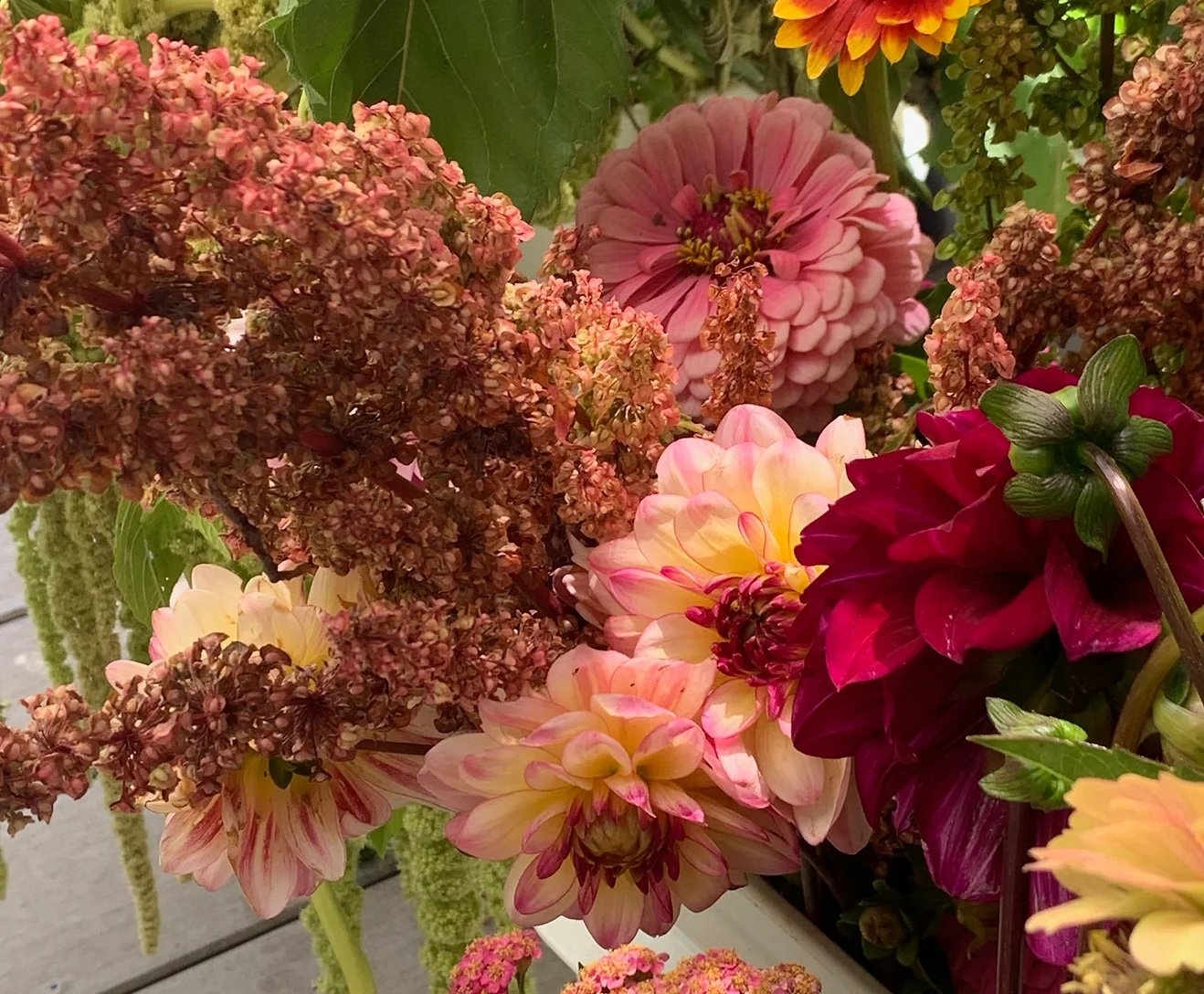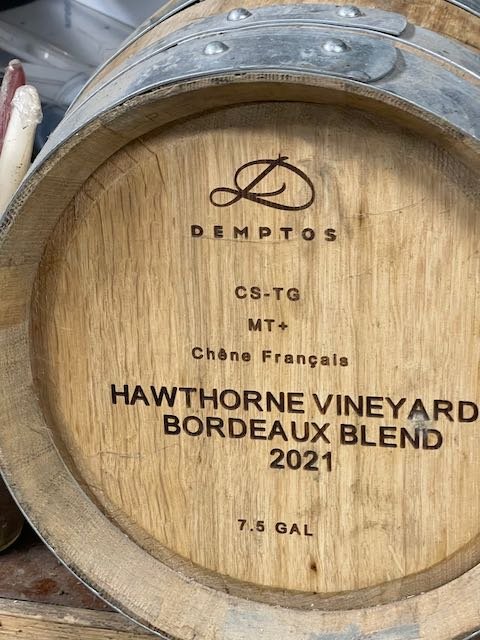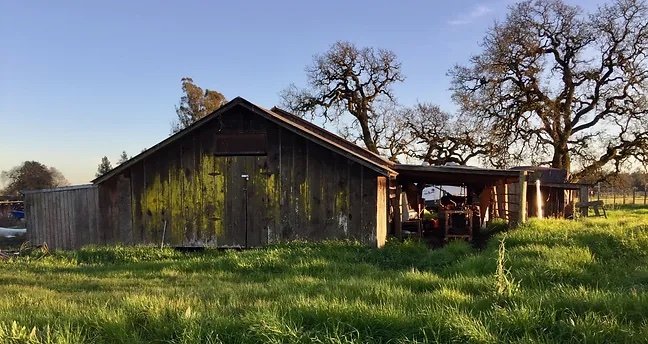
Our Farm Story
The Heritage Farm
The name "The Heritage Farm" comes with a nod to Mother Nature's work, over the millenniums, which has evolved a full circle system that is sustainable.
Plants, animals, birds, beneficials, pests, and microbes which work together. Every output becomes an input for someone else.
That is where the "Heritage" portion of our name comes from. The heritage that has been bequeathed to us.
On our farm, we work to pay attention to how nature's setup has evolved. How can it be adapted to our farm.
Regenerative Farming
On The Heritage Farm, we work to rebuild sustainable systems that Mother Nature has developed; working with her instead of against her. Using science to learn more about how it all comes together.
Regenerative Farming (what a mouthful) is actually about putting in MORE than we take out while working toward no-till farming practices.
It started with -
Organic Farming (no pesticides/chemicals), then to
Sustainable Farming (replace what you take out), and finally,
Regenerative Farming (putting more back in to nourish the whole).
Nurturing the soil, creating micro-biomes to provide habitat & food for birds, butterflies, bees, beneficials, and microbes.
Come join us for a visit to our small family farm and see how all that is translated into practice!
It’s very important to include livestock on the farm.
They are part of the regenerative cycle, nature’s additional help.
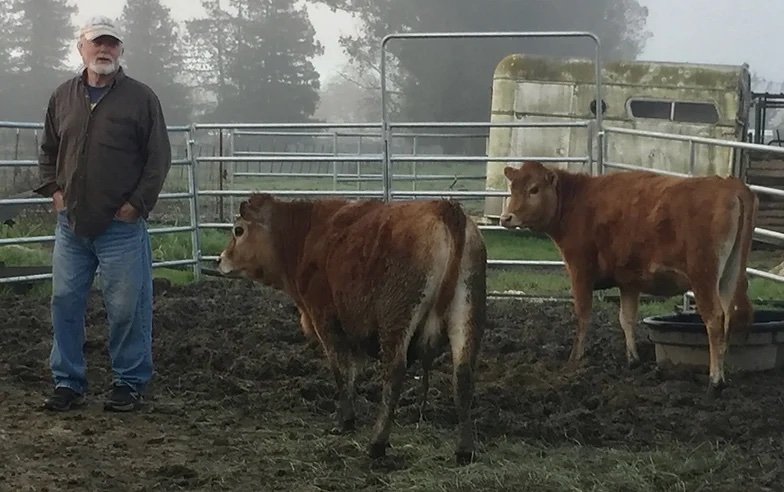
Miniature Jersey Milking Cows Come spring, April & May, we will have newborn calves.

We don't milk the cows the first few months after delivery because we want the calves to get off to a good start on Mom's milk! You will NOT see any of those tiny hutches that dairy calves are isolated into once born, on our farm. Calves nurse on their mothers and play in the fields.

We have two "miniature" Halflinger draft horses for pulling buggies and farming equipment. We've also had true miniature horses to pull buggies but they were not strong enough to pull a plow. A draft horse is big in the chest. You can ride them but their forte is pulling. The usual ones you may see are the giant Clydesdales for Anheuser Bush. Our ladies are much smaller and don't eat TWO bales of hay a day. It's important to size livestock to the amount of land you have. Our goal is small farm-appropriate livestock.
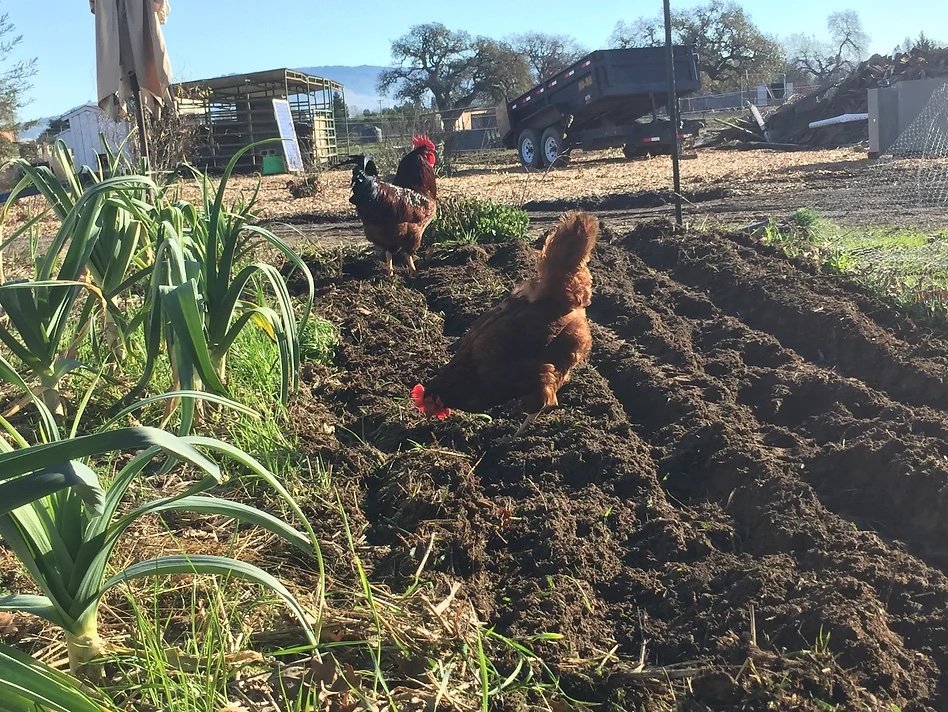
Chickens are a prized asset on our farm. Not only do they provide delicious eggs but they stir up the soil and eat the bugs. We use the composted material from their pens to add to the garden soil. It is very rich in nutrients! When they follow the cows they eat the larvae before they turn into flies.
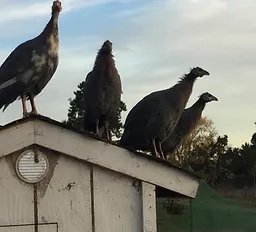
We said goodby to the guinea hens, after they ate the ticks and other bugs, as they were just too noisy ALL the time.

Garden Diversity- the microbes in the soil are the KEY ingredients to healthy plants.
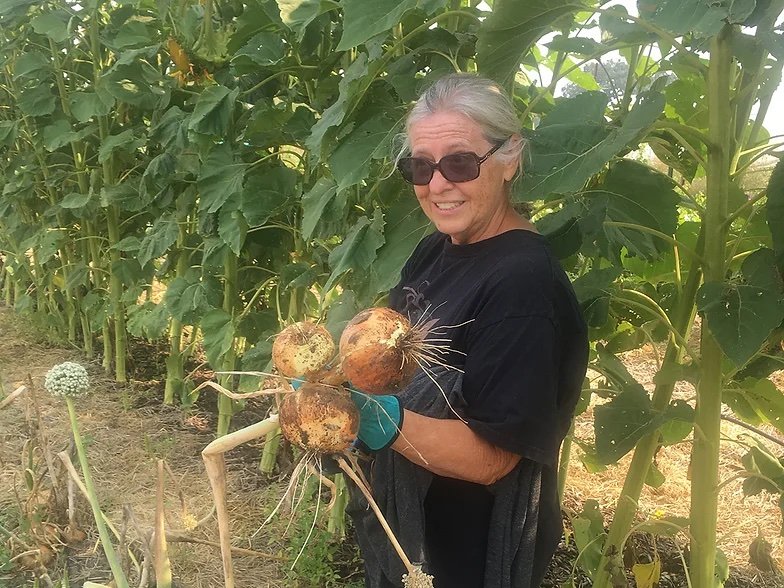
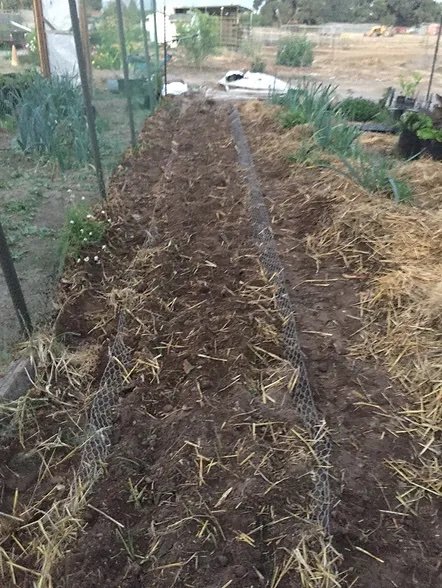
Gopher Conundrum- The most serious predator we have on the farm, that seems to think we are providing a salad bar for them... are gophers. They can wipe out beds of beautifully growing plants, flowers and veggies, and fruit trees before you turn around! YIKES! We've been researching ways to protect our growing beds. Jim has been trapped away but there is always someone ready to move right in when a vacancy occurs. He is currently experimenting with putting a gopher wire wall down 3 ft deep to surround our growing area. The gophers come up to that wall and can't find a way through it. If the info is correct, it will last for 10 years. Pricey and labor-intensive but very valuable plants can disappear almost overnight. A Flower Farm operation can't have its products disappearing just when they are most beautiful. Sad to say but I lost 50% of my tubers in just one season until I realized who was dining, uninvited, on the farm.

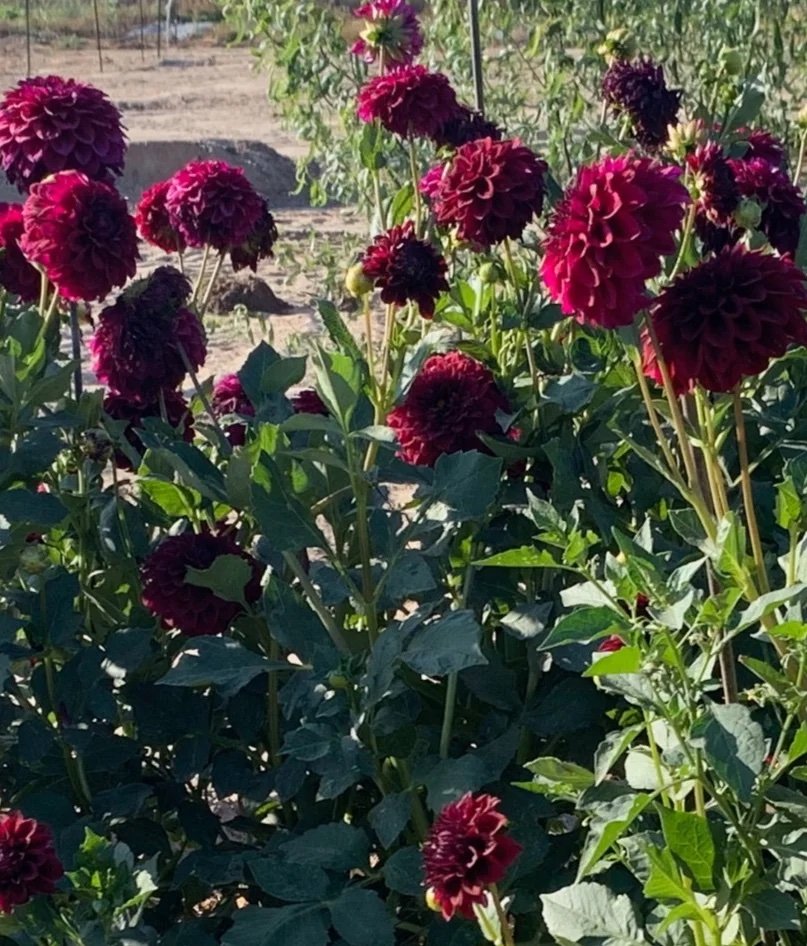
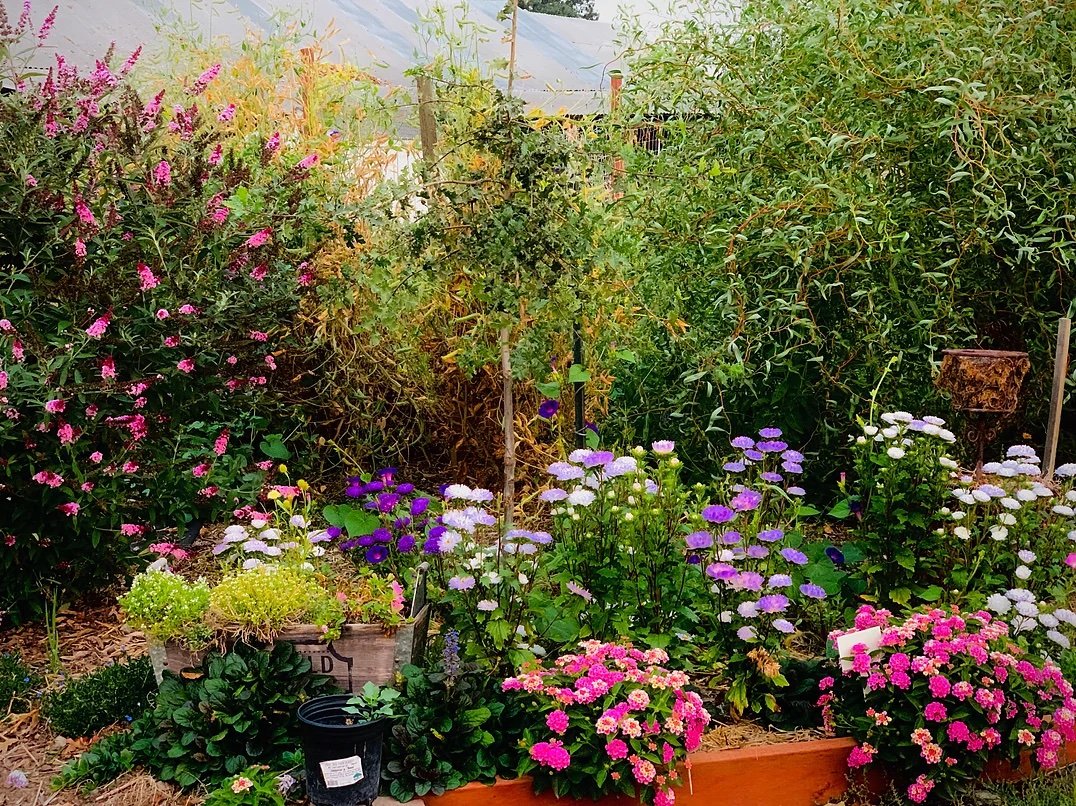
The Team
-
Jim (James) Crawford
HEAD GUY IN CHARGE
He does it ALL. Soil building, habitats, construction, veggies, etc.

-
Amy Crawford
FLOWER FARMER AND DESIGNER
She does NOT do it all!
But she does grow those Flowers & Foliages
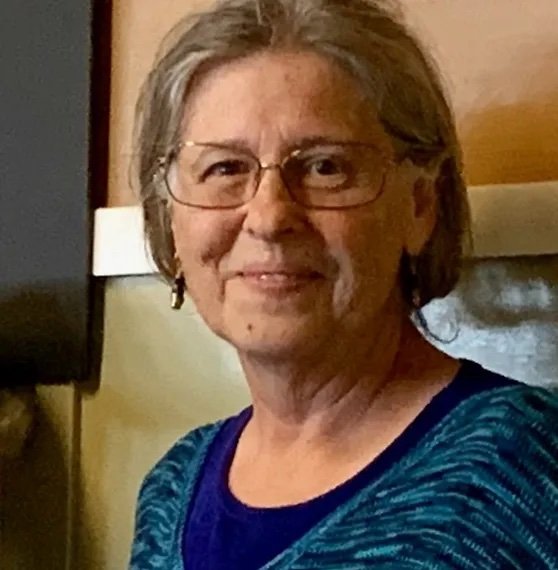
meet Jim
All around Renaissance Man: i.e. can do just about anything needed done on the farm: a farmer, carpenter, welder, heavy equipment operator, and to earn an income, an Electrical Engineer specializing in Computer Science design.
Raised on a hog farm in the East Bay, he was responsible (as a teen) for managing 500 or so pigs and building pens, setting up water systems, feeding, and then processing them when immigrants wanted to buy the stock. It was a real hands-on education.
Along this path gardening early on became part of the lifestyle. That and eating organic. With ongoing scientific research much more is known now about how the industrial farming model is a fatal direction, it kills the life in the soil.
Oh yes, he’s makes wine & beer!
Meet Amy
At Santa Rosa Community College, a friend bringing her own floral design arrangement into a different class they shared, is responsible for a whole new direction in life Amy never considered before. The College has a floral design program (2 yr certificate) to introduce students to floral styles, various flowers & foliages, and the background needed to become a designer.
She fell in love with all the different flowers her instructors introduced her to. She was also appalled at the cost of the flowers.
Not the physical cost but the environmental cost; over 80% had been flown in from overseas. The "carbon cost" was huge and the chemicals used in the overseas markets were basically unregulated; to the detriment of the flower farm workers overseas and to the designers that used them here in the States.
Sorting through those issues she realized that here in Sonoma County we have the perfect growing environment for most flowers; a Mediterranean climate (mild winter, mild summers). If she focused on flowers that did not travel well she could provide sustainable grown organic flowers & foliages to the floral market designers. In addition, she could enjoy creating designs herself for clients and at her farm stand. A win-win; low carbon cost and chemical-free designs that were safe for anyone to use and to be around.
Tour our farm
What to see on the farm:
livestock - miniature milking cows, miniature draft horses, of course, chickens, flower gardens, high tunnels, greenhouses, bog filter mini-pond, fruit orchards, hops, mini-vineyard, and a flower stand (out of an old pickup bed).
Start with a tour of the farm to get the lay of the land.
You will learn a bit about regenerative agriculture and how that works with our flower farming operation.
Our farming processes using livestock helps in creating habitats for bees, birds, butterflies, and other beneficials.
Flowers are our reward from nature!
Lots of things go into a family farm:
planning, researching, visualizing, creating, and the day-to-day caring for all the parts. And YES, even some blood, sweat, and tears. But also, a heck of a lot of JOY and connection with the earth that really makes it worthwhile.
It's good for all of us to find some time to reconnect with nature. It's a kind of grounding to touch something real, not man-made.
Here are some pictures of what you would see on our farm as we have developed over the last few years. The fun is in seeing your work making a difference in the real world.


